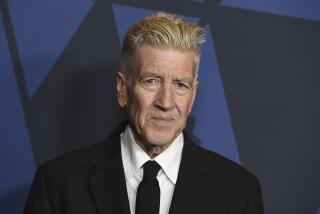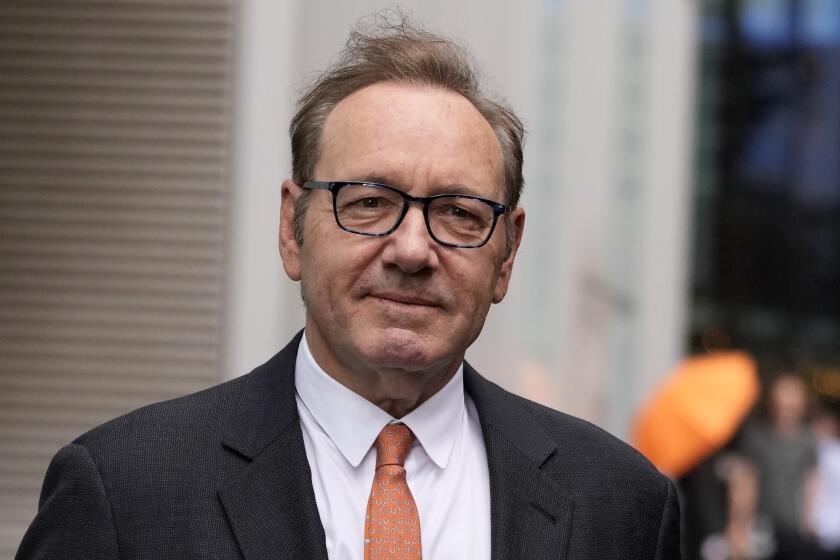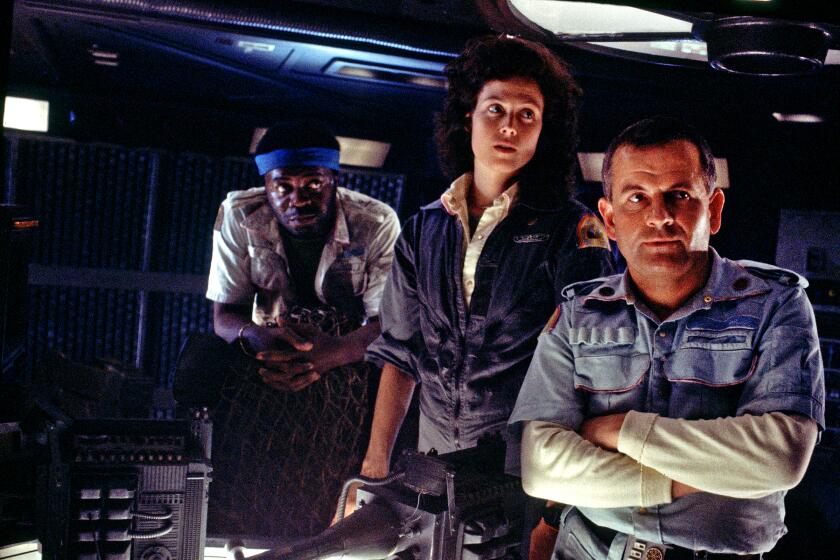A drama set in London? Just a thought Allen had
The reporters revealed their film-theory backgrounds and desire for symbolism, but Woody Allen resisted all attempts to categorize his new film.
“Match Point” is a drama set in London with an almost completely British cast, the exception being Scarlett Johansson, that revolves around the familiar Allen themes of passion, betrayal and consequences. But no, the writer-director insisted, it does not mark the end of his infatuation with New York, a personal trend away from comedy or toward sensuality, an homage to “A Place in the Sun” or a cynicism about the nature of justice.
For the record:
12:00 a.m. May 18, 2005 For The Record
Los Angeles Times Wednesday May 18, 2005 Home Edition Main News Part A Page 2 National Desk 1 inches; 39 words Type of Material: Correction
Woody Allen movie -- An article in Friday’s Calendar section about Woody Allen’s next movie, “Match Point,” said the cast is almost completely British, with the exception of Scarlett Johansson. Another exception is actor Jonathan Rhys-Meyers, who is Irish.
“I write the idea that occurs to me,” he said at a news conference Thursday following an early morning screening of the film. “My films are done much more by chance than by design than people seem to think.”
One by one, journalists, mostly from the U.K. and the U.S., ignored the cast members present -- Johansson, Emily Mortimer and Jonathan Rhys-Meyers -- to ask the director rather esoteric questions that seemed more about where “Match Point” fit in the Allen oeuvre, and what it signified to his future, than the film itself. And one by one, Allen answered with the bottom-line pragmatism of a veteran filmmaker.
He made the film in London, he said, because the conditions there were more conducive to creativity. Although he has no problem getting financing in the U.S., he said, studios have become increasingly meddlesome.
“They want a say in casting, they want to see the script, sometimes they come to dailies,” he said. “I’ve never worked that way. I want the money in a brown paper bag and then I’ll give them a film a few months later. In London it went more that way.”
The cast was British because of the tax laws, and the moment he found out it did not have to be 100% British, he cast Johansson, who, he said, was fortunately available. “She was willing to work for little money. The budget is small and we’re very democratic -- everyone gets nothing.”
The story follows a poor Irish tennis pro as he enters the cozy rich environs of a British upper-class family, and involves more sex -- Johansson and Rhys-Meyers have scenes that involve rain-soaked blouses and baby oil -- and violence than a typical Allen film. But, he points out, compared to most films today, it is still quite discreet. “To me, this is a crime story,” he said. “I was interested in the crime and the characters filled themselves in.”
Without giving too much away, many viewers felt there were similarities to “A Place in the Sun” and other films as well as to Allen’s own “Crimes and Misdemeanors,” similarities Allen dismissed. “This film is about luck and ambition, quite a bit about luck, and passion.”
The story could very well have been set in San Francisco or New York or Paris, he said, but he liked working with the cast members because they were such fine actors “and for some reason whatever British or Irish or Australians, whether it’s their delivery or training or genetics, but it all sounds just great to me.”
Blinking a bit in front of the bright lights and asking that many questions be repeated “because I’m a little hard of hearing,” Allen was clearly happy to answer all questions, even the ones that seemed more like a film student thesis than a question. But he wanted to be clear that most of his decisions are made from practical need rather than from some overarching philosophy -- although he acknowledged the influence 19th-century Russian literature and his own observation of widespread injustice had on his main characters and the story’s ending.
“I never think I am cynical in general,” he said. “Cynicism, to me, is an alternate spelling for reality. It is clear to every thinking person that an enormous amount of crime goes unpunished or even is rewarded. I don’t think that’s cynical.”
His own creative impulse is also based on need. “I need the distraction,” he said. “If I don’t make them, I don’t have distraction from depression and general terror. It’s like patients in a mental institution -- give them something to do like basket weaving and it soothes them.”
“Match Point” was well-received at the press screening (it premieres tonight). Allen thinks it turned out rather well and the whole experience of working in London was so satisfactory -- “the weather was cool, the sky gray; perfect for me” -- that he will return this summer to shoot an as-yet untitled movie, also with Johansson, who some are dubbing Allen’s new muse. But no matter how this movie does, or where it fits in the grand scheme of “cinema, subset Woody Allen,” Allen will continue to do what he’s always done: write stories he finds interesting and turn them into movies.
“And if people come and like it, I’m glad. But if they don’t, I still have the benefit of living in an unreal world for a year.”
More to Read
Only good movies
Get the Indie Focus newsletter, Mark Olsen's weekly guide to the world of cinema.
You may occasionally receive promotional content from the Los Angeles Times.










